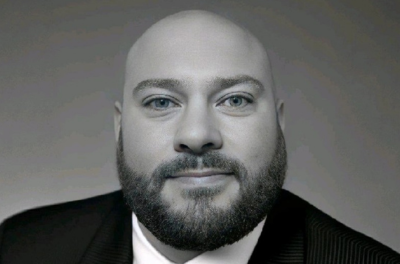Meet the experts shaping the future of digital health and care. Our Judges Spotlight series showcases the vision and insight of the HSJ Digital Awards judging panel - leaders driving innovation, transformation and lasting impact across the NHS.
Discover Jonny Summat, Director of Digital Services, Welsh Ambulance Service experience and advice for this year’s entrants below.

Tell us about yourself – what inspired you to get involved in digital health?
I’ve always been one of those people who likes figuring out how things work. When I was younger, that meant taking computers apart and trying to put them back together. My first jobs were in the private sector, and I ran a small web design and PC repair business on the side. Those early years taught me how creative technology could be when it’s in the right hands, but also how frustrating it can be when it isn’t.
That’s what eventually pulled me toward the NHS. I wanted to help make technology better for people, not just more complicated. Digital health gives you the chance to do something that actually matters. I’ve never been one for sticking to rules that don’t work… the Be More Pirate idea really resonates with me. Sometimes you need to challenge the system a bit to make progress. Purposeful disruption, done well, is often what gets things moving in the right direction.
From your experience in digital transformation, what approaches have made a lasting impact in health and care?
The biggest difference always comes from putting people at the centre. When you bring clinicians, patients and digital teams together, and let everyone help shape the solution, things actually stick.
I’ve found that language matters more than most people realise. When you stop talking about “systems” and start talking about “problems we need to solve,” the energy changes. People feel part of something, not subject to it.
In the ambulance sector, that’s been key to moving from small, one-off projects to a genuine culture of improvement. Whether it’s introducing drones to support emergency response, rolling out digitised audit tools to simplify assurance, or developing smart station initiatives that make daily work easier for frontline teams, it all comes back to the same principle. We use digital to solve real problems, not to create new ones. If it makes life simpler for staff and safer for patients, it’s worth doing.
What digital innovation or trend are you most excited to see influencing the NHS in the next few years?
AI is exciting, there’s no doubt about that… but what really interests me is how we combine it with getting the basics right. There’s no point in chasing big, shiny ideas if people are still battling with slow logins or systems that can’t talk to each other.
If we fix those everyday frustrations first, we create the space for innovation to thrive. Once the basics work, things like AI, automation and voice recognition can genuinely change how care is delivered.
Across healthcare, we’re starting to see AI being used in everything from virtual assistants to language tools and decision support systems. The key question should always be the same: will this make things simpler, quicker, or less stressful for the people using it and will it help the patients that we serve? The best technology isn’t the most visible, it’s the kind that quietly gets out of the way and just helps people do their jobs better.
What have you learned from your time on the HSJ Digital Awards judging panel?
You often read about what could be better in the NHS, where things fall short or what still needs fixing. But being part of the judging panel reminds you of the other side of the story. You get to hear first-hand about the amazing work happening every day, led by equally amazing people who care deeply about what they do.
It’s one of the most inspiring parts of the year, to be honest. You see so many different teams, all trying to make a difference in their own way. Some are big national programmes, others are small local ideas that started around a coffee table, but they all share that same spark of purpose and positive disruption.
The entries that really stand out are the ones that tell a clear story. You can feel the passion behind them. It’s not about how slick the slides are; it’s about the impact on patients, staff and communities.
It’s a real privilege to judge because you get a front-row seat to the creativity that exists right across the NHS. Every time, I come away reminded that innovation is alive and well, it just needs to be seen and celebrated.
What one piece of advice would you give to teams preparing their entries to help their work stand out?
Start with people, not technology. Tell your story the way you’d tell it to a colleague on a break, what problem did you see, what did you do about it, and how did it change things for patients or staff? Let their voices come through. The strongest entries have a heartbeat, you can feel the care behind them!
Don’t fall into the trap of buzzwords or corporate speak. Be honest about the bumps in the road as well as the wins. Judges aren’t looking for perfection, they’re looking for purpose, authenticity, and impact.
And be proud to show your creativity. The NHS has some of the most entrepreneurial and creative people I’ve ever met, people who quietly build, test and improve things every day... Share what you’ve learned, how others can build on it, and what you’d do differently next time.
Above all, back yourselves. Your work matters and if you tell your story with clarity, honesty, and heart, it will stand out every time. The best innovations don’t just deliver results, they inspire others to believe they can do it too.